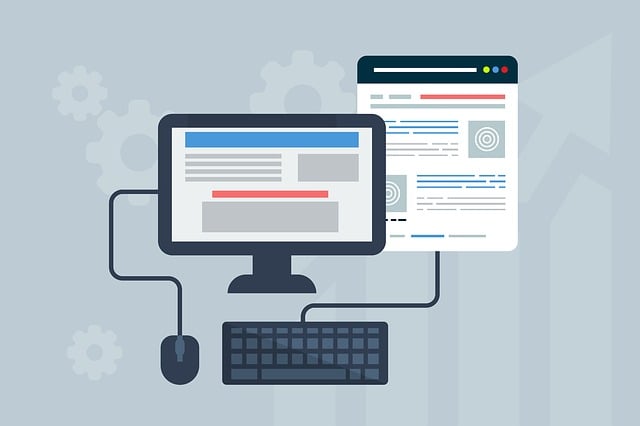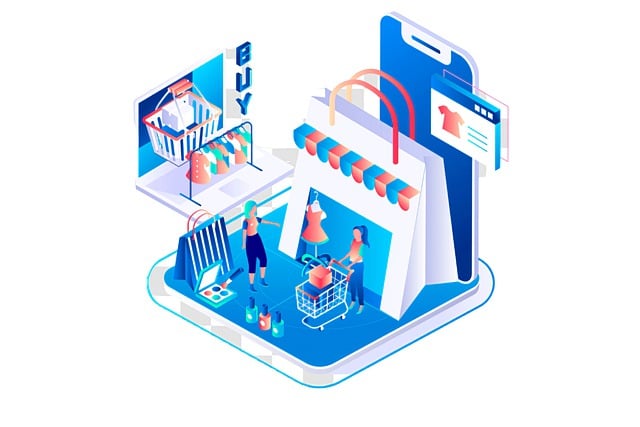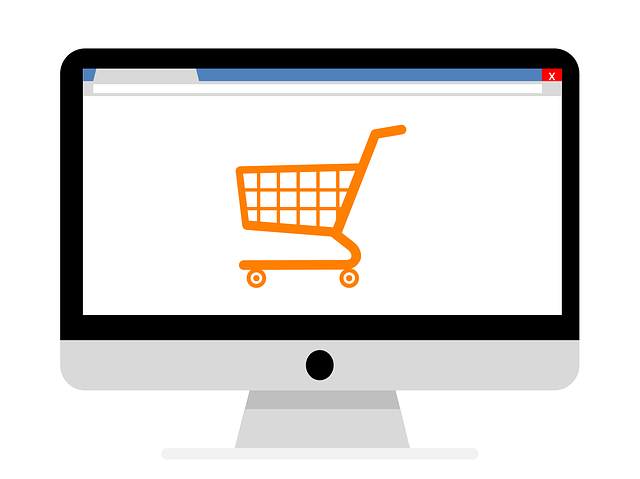Custom ecommerce website design offers tailored solutions for unique business needs, enhancing user experience and driving sales growth. By focusing on specific requirements, brands create storefronts aligning with their identity and audience. Key benefits include personalized recommendations, seamless third-party integrations, optimized user journeys, enhanced security, and increased trust leading to higher conversion rates. This design prioritizes mobile optimization, intuitive navigation, and visually appealing layouts to foster a vibrant online shopping environment. Essential features include secure payment gateways, inventory management tools, and analytics tracking for streamlined operations and customer insights. Seamless integrations with third-party services further boost user experiences and sales potential.
Custom e-commerce websites are tailored solutions that offer significant advantages over ready-made platforms. This article explores the benefits and key considerations for building your own online store. We’ll guide you through identifying essential features, designing an engaging user experience, implementing robust functionality, ensuring security and performance, and understanding ongoing maintenance needs. Discover why a custom approach can be a game-changer for your business in today’s digital landscape.
Understanding Custom E-commerce Websites: Definition and Benefits

Custom E-commerce websites are tailored solutions designed to meet unique business needs. Unlike pre-built platforms, these sites offer a level of flexibility and personalization that can significantly enhance user experience and drive sales growth. By focusing on specific requirements, brands can create an online storefront that perfectly aligns with their brand identity, product offerings, and target audience.
The benefits of custom ecommerce website design are vast. It allows for unique features like personalized product recommendations, seamless integration with third-party tools, and optimized user journeys tailored to customer behavior. Moreover, customization enables businesses to implement specific security measures, ensuring a secure online environment for both customers and the brand. This level of control over every aspect of the website fosters trust, increases engagement, and ultimately contributes to higher conversion rates.
– What constitutes a custom e-commerce website?

A custom e-commerce website is a tailored digital solution designed to meet the unique business needs and requirements of an organization. Unlike off-the-shelf platforms, which offer standardized features and functionalities, a custom website is developed from scratch, ensuring every element aligns with specific brand identity, target audience, and sales objectives.
E-commerce website design involves creating not just an attractive online storefront but also a seamless user experience, efficient product management, secure payment gateways, and robust inventory management systems. By incorporating bespoke features and integrating third-party tools, a custom e-commerce site can streamline operations, increase conversion rates, and foster stronger customer engagement.
– Advantages of custom-built platforms over ready-made solutions.

Identifying Key Requirements for Your Online Store

Before diving into designing your custom e-commerce website, it’s paramount to identify key requirements that will underpin its success. The first step involves understanding your target audience and their unique shopping preferences. This includes considering factors such as ease of navigation, product search functionality, and a seamless checkout process – all integral elements for a positive user experience.
Next, align your website design with your brand identity and business goals. Decide on the look and feel that best represent your brand, ensuring it resonates with your target audience. Additionally, incorporate essential features like secure payment gateways, inventory management tools, and analytics tracking to streamline operations and gain valuable insights into customer behavior.
– Features essential for your business.

When crafting a custom ecommerce website design, it’s paramount to prioritize features that align with your business goals. The core functionalities should cater to your target audience’s needs, ensuring a seamless and intuitive shopping experience. Incorporate robust search tools, detailed product descriptions, high-quality visuals, and secure payment gateways as foundational elements.
Beyond these basics, consider integrating advanced features like personalized recommendations, customer reviews, and real-time inventory updates for enhanced user engagement. Additionally, optimize your website for mobile users, given the growing trend of online shopping through smartphones, to maximize accessibility and sales potential.
– Integrations and integrations with third-party services (e.g., payment gateways, shipping providers).

Custom ecommerce websites thrive through seamless integrations with third-party services. These connections streamline essential functions like secure payment processing and reliable shipping, enhancing user experiences and boosting sales potential. Integrations with popular payment gateways ensure smooth transactions, while shipping provider partnerships optimize delivery logistics. Ecommerce website design that incorporates these integrations becomes a powerful tool for business growth, allowing entrepreneurs to focus on their core competencies rather than logistical complexities.
